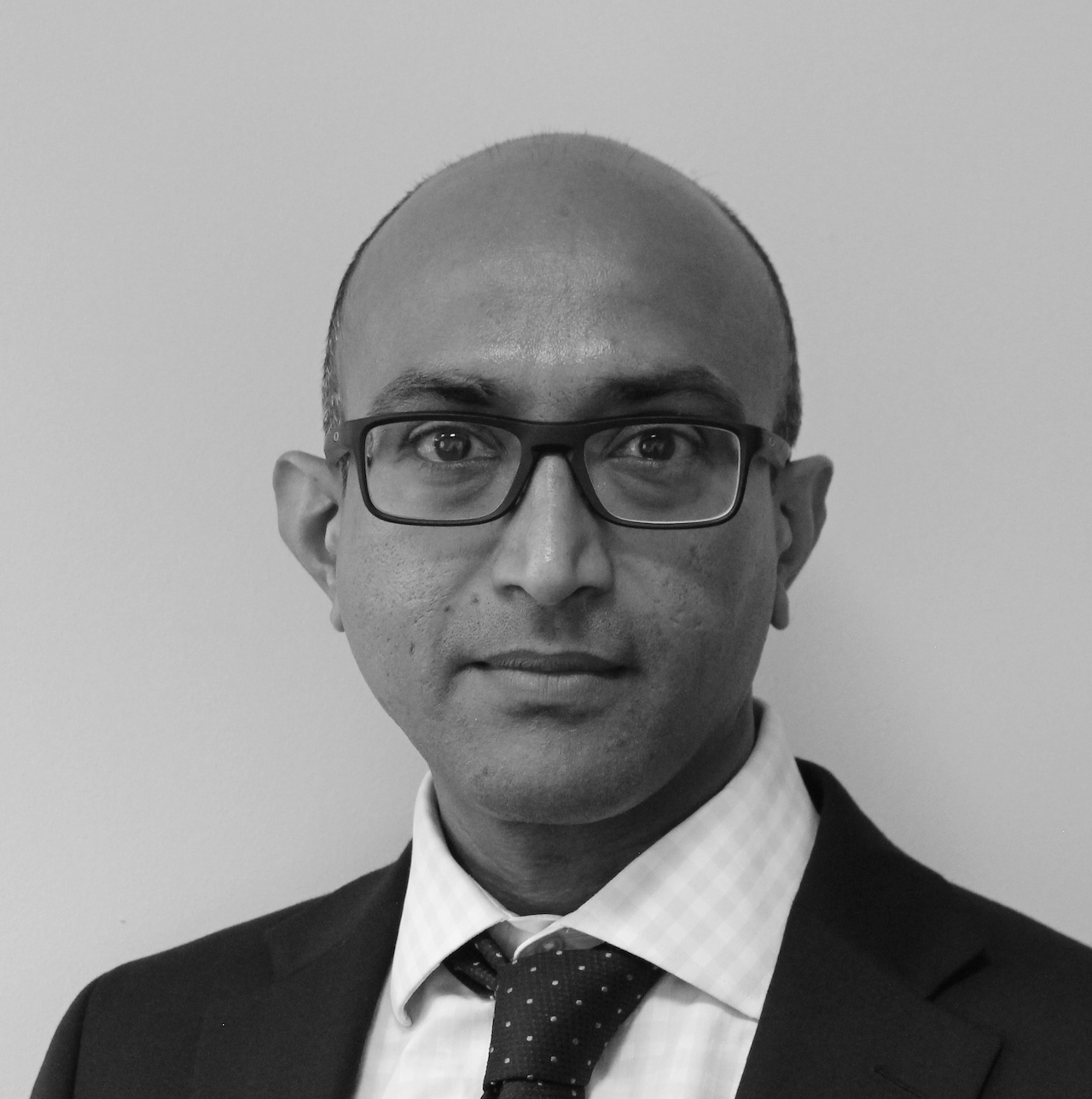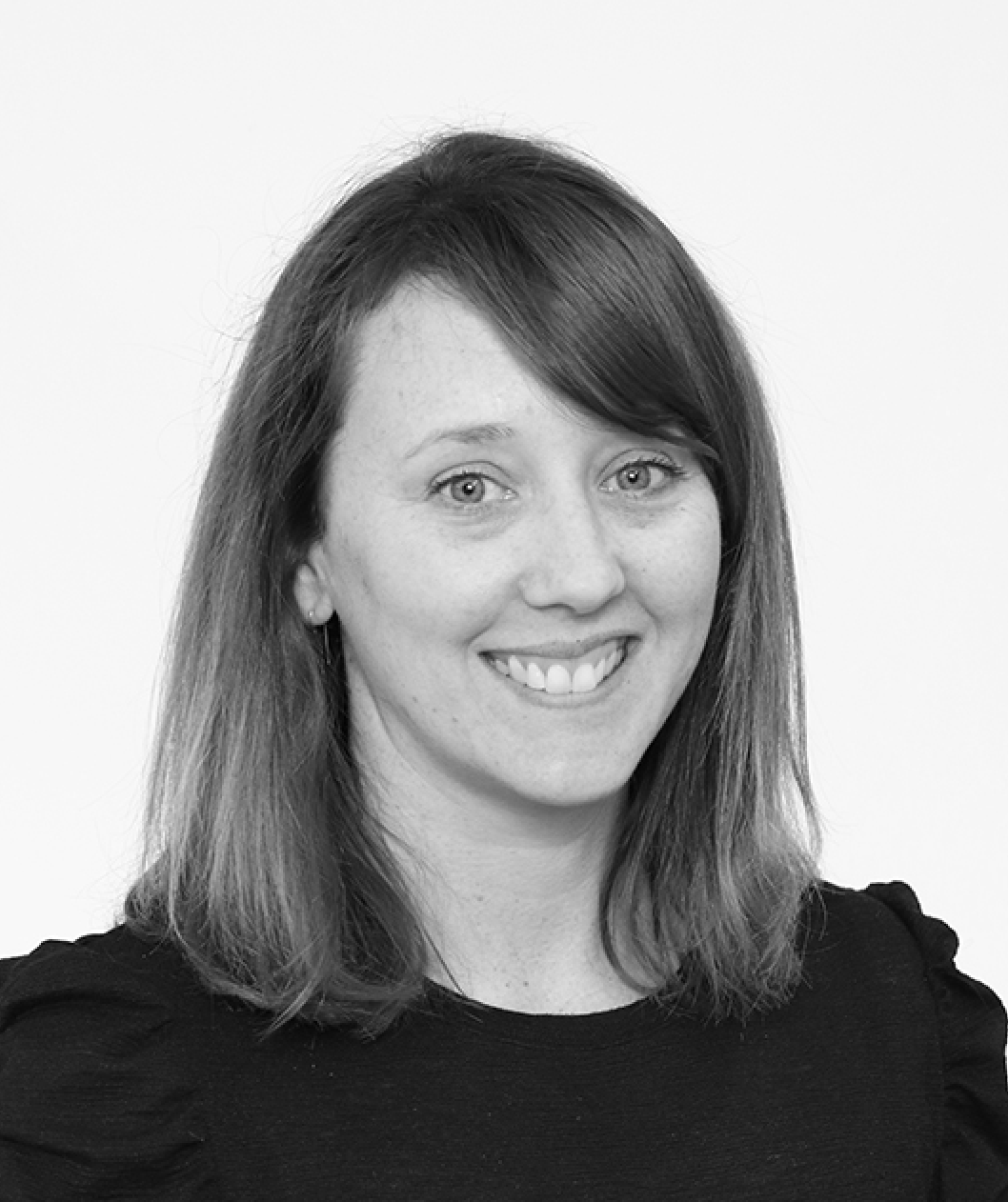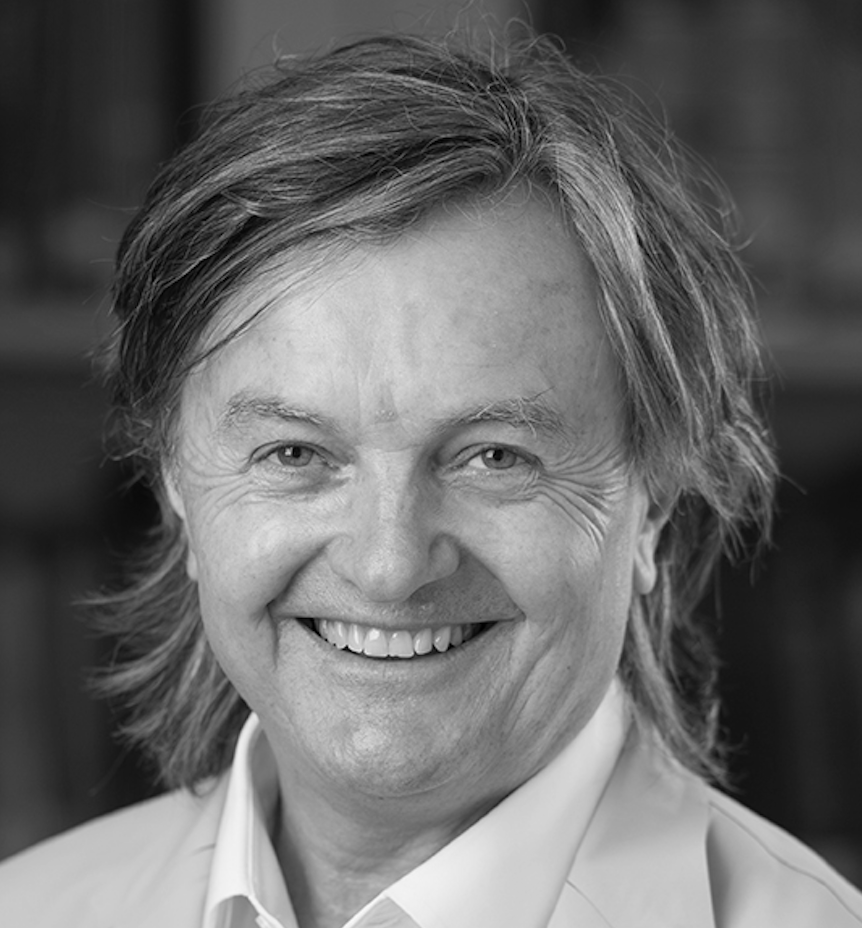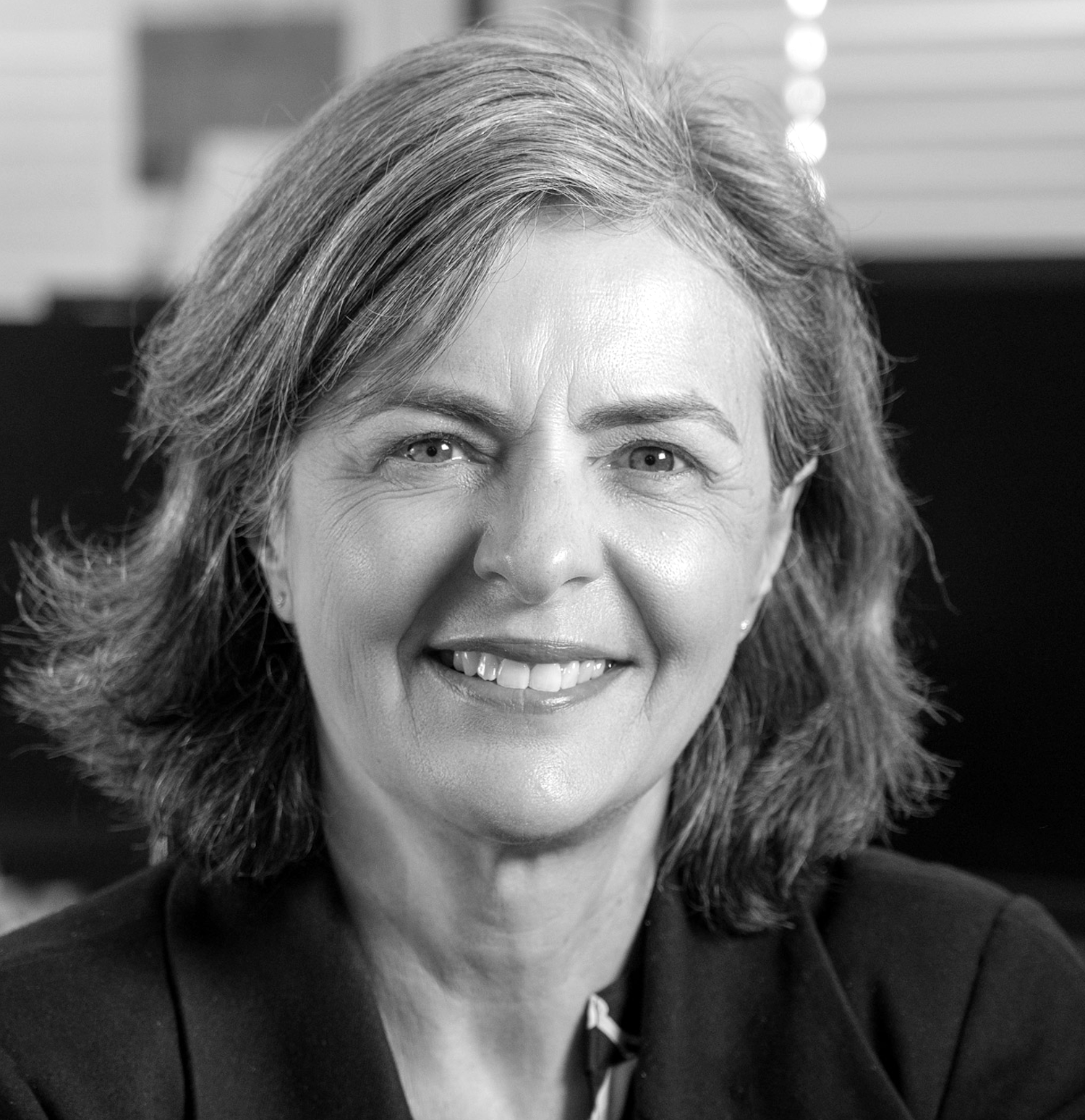Invited Speakers
Overseas Invited Speakers
Professor Janet Pope (Canada)
MD MPH FRCPC
Dr. Janet Pope is a Professor of Medicine and member of the Division of Rheumatology at the University of Western Ontario (UWO), Schulich School of Medicine, London, Ontario, Canada. Her research includes studies in scleroderma, SLE and RA. She has published over 500 peer-reviewed articles. She has received the Distinguished Investigator Award from the Canadian Rheumatology Association, Rheumatologist of the Year from the Ontario Rheumatology Association, Department of Medicine Research Achievement Award, and the Dean’s Award of Excellence in Research. She has been inducted into the Canadian Academy of Health Sciences, the highest achievement for a health care professional in Canada.
A/Professor Edward Vital (UK)
MB ChB, MRCP (UK), PhD
NIHR Leeds Biomedical Research Unit, Leeds Teaching Hospitals NHS Trust
Leeds Institute of Rheumatic and Musculoskeletal Medicine
University of Leeds, Leeds, United Kingdom
Ed Vital is an Associate Professor in Autoimmune Connective Tissue Diseases and Honorary Consultant Rheumatologist, at Leeds Teaching Hospitals NHS Trust in the UK. He is the Head of the Leeds Lupus Research Group with interests in early disease, skin disease, musculoskeletal outcome measures, translational immunology, and B cell therapies.
Dr Vital studied Medicine and Surgery at the University of Manchester and became a Member of the Royal College of Physicians in 2004. In 2012, he completed his PhD, at the University of Leeds studying B cell depletion therapy.
He is a Member of the SLEuro executive committee, chair of the British Society for Rheumatology Special Interest Group for SLE, and Chair of the British Isles Lupus Activity Group, a member of the global steering committee of Transform Lupus and Chair of the Lupus Forum. In 2018 he won a the Medical Research Foundation Emerging Leaders Award, and in 2019, he won the British Society for Rheumatology Michael Mason Prize.
His research covers a broad range of clinical translational themes. In early SLE he has characteristed an “At Risk” population and shown that development of SLE can be predicted by Type I interferon status. From this finding, his group then showed that from the earliest phases of pre-clinical disease, Type I interferon production does not come from plasmacytoid dendritic cells as once thought, but from non-haematopoietic cells in target organs such as the skin, reversing the concepts of some conventional models of autoimmunity. In established disease he has extensively investigated the efficacy and mechanism of action of B cell depletion, demonstrating the importance and mechanism of depth of depletion, and the existence of B cell independent-inflammation in cutaneous disease. In lupus arthritis he used imaging to develop new outcome measures, trial designs and treatment strategies. Key current interests include stratification of early and established disease and interferon biomarkers, in which he is leading an international TaskForce.
Clinical A/Professor Andrea Low (Singapore)
Clinical Associate Professor at Duke-National University of Singapore and Head of Department, Rheumatology and Immunology, Singapore General Hospital (Singhealth)
Dr Andrea Low is Clinical Associate Professor at Duke-National University of Singapore and Head of Department, Rheumatology and Immunology, Singapore General Hospital (Singhealth). Her clinical and research interest is in systemic sclerosis (SSc). She spear-headed the nation-wide collaborative SSc research workgroup dedicated to advancing clinical care and research in SSc, and established the Systemic Sclerosis Cohort in Singapore (SCORE) cohort since 2008. She is recipient of the Clinician Scientist Award for her work in SSc. She is convenor of the Asia Pacific League of Associations of Rheumatology (APLAR) SSc special interest group and member of the Scleroderma Clinical Trials Consortium, contributing to the education sub-committee. She led her Department to recognition as the APLAR Centre of Excellence (since 2017). In partnership with Jansenn, their multi-disciplinary Cardiology, Respiratory and Rheumatology pulmonary hypertension team at Singhealth is recognised as a Centre of Excellence for Pulmonary Hypertension that serves as a regional reference centre for training and management of all causes of pulmonary hypertension.
Professor Athimalaipet V. Ramanan (UK)
FRCPCH, FRCP
Athimalaipet V. Ramanan is a consultant pediatric rheumatologist at the Bristol Royal Hospital for Children. He is the joint lead for research (Division of Women and Children) at the Bristol Royal Hospital for Children, and Professor of Paediatric Rheumatology at the University of Bristol.
Professor Ramanan is a medical advisor for Olivia’s Vision. He is also Co-Chair for the National Institute for Health Research Clinical Research Network: Children/Arthritis Research UK (ARUK) Paediatric Rheumatology Clinical Studies Group, and Associate Director for the UK Experimental Arthritis Treatment Centre for Children (JIA-Uveitis and Industry work streams). He was awarded the British Society of Rheumatology’s Innovation in Clinical Practice Award in 2010. He was also awarded the University of Bristol Vice Chancellor’s Health Impact award in 2017 and Royal College of Physicians/NIHR CRN Award for outstanding contribution to research in 2018.
Professor Ramanan’s has published >225 articles and numerous book chapters covering a variety of topics in the field of rheumatology. He is the Co-Editor of Rheumatology and Associate Editor for the Archives of Diseases in Childhood.
He is one of the Editors of 5th Edition of Oxford Textbook of Rheumatology.
He has also led trials of Tocilizumab and Baricitinib in COVID-19 and part of the paediatric steering committee of the RECOVERY trial.
Mr Will Gregory (UK)
Consultant Physiotherapist and Clinical Governance Lead
Rheumatology Directorate, Salford Royal Hospital, Salford Care Organisation
Part of the Northern Care Alliance NHS Group
Will is a Consultant Physiotherapist, employed by the Rheumatology team at the Salford Care Organisation, part of the Northern Care Alliance NHS Foundation Trust in Greater Manchester, UK. He is also an Honorary Senior Lecturer at Manchester Metropolitan University teaching on the Advanced Practice and First Contact Practitioner MSc modules on the early detection and assessment of rheumatological conditions. He is also part of the team delivering the MSc in Rheumatology at Keele University. He completed a BSc with honours in Physiotherapy in 2001 at the University of Manchester, UK and an MSc in Physiotherapy in 2013 at the Manchester Metropolitan University, UK.
Will is a published author in the rehabilitation of Myositis, of Scleroderma, of Fibromyalgia and of Axial Spondyloarthritis. His Scleroderma rehab research was an RCT where he acted as PI under an Honorary Research Associate contract at the University of Manchester. He has been a topic expert on guideline developments in Myositis with the British Society for Rheumatology(BSR) and Rheumatoid Arthritis with the National Institute for Health and Care Excellence.
Will has led on a UK-wide survey of rheumatology physiotherapy practice and on the subsequent development of the Chartered Society of Physiotherapy and BSR-endorsed “Rheumatology Physiotherapy Capabilities Framework”. He has a passion for advancing AHP roles in Rheumatology and striving for equity of access to rheumatology physiotherapy services across the UK. He has recently published in delay to diagnosis in Axial Spondyloarthritis and sits on a national task force group to decrease delay across the UK.
Will co-chairs the recently formed national Rheumatology Physiotherapy Clinical Interest Group (CIG) in the UK. With more than 20 years NHS physiotherapy experience, he runs Injection, Pain and Axial Spondyloarthritis clinics at Salford and also has a role as Clinical Governance Lead for the Rheumatology team. He is active on social media as @PhysioWillGreg and as a part of the national CIG @RheumPT_MACP
Plenary Speakers
Professor Graeme Jones
Professor Graeme Jones is professor of rheumatology and epidemiology at University of Tasmania and a rheumatologist in private practice at Noosa Hospital on the Sunshine Coast. He has over 500 publications on rheumatology and beyond.
Associate Professor Joanne Kemp
PT PhD
Associate Professor Joanne Kemp is the deputy director and a Principal Research Fellow at the Latrobe Sport and Exercise Medicine Research Centre and the director of the La Trobe University Clinical Trials Platform. She is also a Sport & Exercise Physiotherapist. Her research is focussed on surgical and non-surgical interventions that can slow the progression and reduce the symptoms associated with hip pain, hip osteoarthritis, and knee osteoarthritis. She recently was awarded a NHMRC investigator grant and has received funding from NHMRC, MRFF, industry and philanthropy for clinical trials research in musculoskeletal pain and injury.
Professor Fabienne Mackay
Professor Fabienne Mackay is the Director and CEO of QIMR Berghofer Medical Research Institute. She joined QIMR Berghofer in May 2020, having been the inaugural Head of the School of Biomedical Sciences and Head of the Department of Pathology in the Faculty of Medicine, Dentistry and Health Sciences, at the University of Melbourne since 2015.
Professor Mackay studied Medicine and Biomedical Engineering before obtaining her PhD in Molecular Biology and Immunology from Louis Pasteur University in Strasbourg, France. She started her research career in the biotech industry at Biogen Inc. in Boston. In 1999, she joined the Garvan Institute in Sydney as Director of the Autoimmunity Research Unit, and in 2009 she was recruited as Head of the Department of Immunology at Monash University.
Professor Mackay was elected as a Fellow of the Australian Academy of Health and Medical Sciences (AAHMS) in 2016. She is a Council member of AAHMS, Board member of AAMRI, Board member of JDRF, and a member of the NHMRC Research Committee.
Her major research interest relates to autoimmune diseases such as lupus and leukemia.
Professor Flavia Cicuttini AM
Flavia Cicuttini AM is Head of Rheumatology Alfred Hospital, Head of the Musculoskeletal Unit at Monash University, and NHMRC Leadership Fellow. Her principle research interests are the prevention and treatment of musculoskeletal diseases. She has publishing over 600 papers. Recent awards include 2021 Royal Australian College of Physicians Eric Susman award for research, 2019 Fellowship of Australian Academy of Health & Medical Sciences. She currently serves on the Council of the Australian Academy of Health and Medical Sciences, the Repatriation Medical Authority, the AIHW National Arthritis and Musculoskeletal Monitoring Advisory Group, the OARSI Board and a number of journal editorial boards.
Dr Saliu Balogun
Dr Balogun is a research fellow at the Menzies Institute for Medical Research, University of Tasmania, Australia. He completed a Bachelor of Physiotherapy at the University of Lagos, Nigeria, an MSc in Gerontology at the University of Southampton, UK, and a PhD in Medical Research at the University of Tasmania.
Dr Balogun’s research examines the impact of sarcopenia on falls, fractures, quality of life, mortality, osteoarthritis, and osteoporosis. He has published >30 papers and is an Associated Editor for BMC Musculoskeletal Disorders. His work has generated great interest in the field, as demonstrated by oral presentations at major national and international conferences and awards/prizes/travel grants, including top-rated abstract awards, best oral presentation, and Young Investigator award at international conferences.
Preceptorship Speakers
Dr Shavi Fernando
MBBS(Hons) BMedSc(Hons) FRANZCOG PhD
Shavi is a Specialist Obstetrician and Gynaecologist. After completing his undergraduate Bachelor of Medicine and Surgery with honours at Monash University, Shavi also completed a Bachelor of Medical Science with first class honours and a PhD in O+G. In addition to this, he is a Senior Lecturer at Monash University and the Director of Undergraduate Curriculum and Assessment (Women’s Health) at Monash University. He works in the public health system at Monash Women’s in the high-risk tertiary obstetric unit. He practices privately at Cabrini, Jessie McPherson and Waverley Private hospitals. He is currently supervising a PhD student looking at the limitations of genome wide NIPT. He has written two undergraduate books and is currently writing another.
Shavi balances this with a young family, and enjoys chasing around his boisterous son and daughter when he has a spare moment.
Dr Samar Ojaimi
Samar is currently head of the immunology laboratory at Monash Health, where she also works as a clinical immunologist and infectious diseases physician, after having completed a PhD at the Walter Eliza Hall Institute in Melbourne. She has a particular interest in Inborn Errors of Immunity and immunogenetics.
Dr Tina Ko
Tina is a second year rheumatologist from Monash Health, having completed her MBBS at Monash University in 2013. During her final year of advanced training, Tina worked as an infectious diseases registrar, predominantly dealing with immunocompromised infections.
Dr Allison Black
BMedSci MBBS(Hons) FRACP, Medical Oncologist , Royal Hobart Hospital
Allison graduated at the University of Tasmania prior to relocating to The Alfred hospital in Melbourne to complete her basic physician training. Allison completed her advanced medical oncology training in Victoria and Hobart and then travelled to Canada to complete a clinical fellowship at the Tom Baker Cancer Centre in Calgary. Allison has subspecialty interests in gynaecological cancer and thoracic malignancies. Allison is driven to provide quality health care to patients in regional centres. This passion saw Allison appointed the Clinical Lead of Cancer and Blood Services Clinical Trial Unit at the Royal Hobart Hospital from 2020 to late 2022. Allison remains actively involved in Clinical Trials and has been a principal investigator in over 15 clinical trials as well as a member on the national safety committees for a number of these trials. Allison is the current chair of the Cancer Council Tasmania Scientific Advisory Committee.
Allison has always considered service to the community of high importance and continues to be involved in fund raising for WomenCan and local Tasmanian organisations as well as community educational events.
Dr Pamela Anjara
Dr Pamela Anjara is a consultant Rheumatologist. She works both publicly at the Northern Hospital in Melbourne and privately at a busy inner-city practice. In addition to this, she works as a clinical sub-Dean at Melbourne University Medical School.
National Speakers
Professor Tania Winzenberg
Tania Winzenberg (MBBS, FRACGP, M Med Sci (Clin Epi), PhD) is Professor of Chronic Disease Management at the University of Tasmania. One of her main research focuses is the prevention and management of musculoskeletal conditions. She is an academic general practitioner with over 200 peer–reviewed journal publications in top specialty and general journals, including BMJ and JAMA, as well as being an invited author for the ASBMR’s Primer on the Metabolic Bone Disorders. She has been involved in writing six clinical guidelines for osteoporosis and for chronic disease prevention in general practice. She is expert at systematic reviews having published 21 in peer-reviewed journals including two meta-analyses in the BMJ, and 28 for research consultancies. For over a decade she has been osteoporosis editor for the Cochrane Database of Systematic Reviews.
Professor Eric Morand
FAHMS
Professor Eric Morand is the Head of the School of Clinical Sciences, Monash University, and Director of Rheumatology at Monash Health. He graduated from Medicine at Monash University, trained in rheumatology in Australia and at the Royal National Hospital for Rheumatic Diseases, UK and took his PhD at Monash University.
His laboratory research focusses on glucocorticoid-induced mechanisms in the immune system, with the goal of leveraging natural mechanisms of glucocorticoid action to discover a safe replacement for them. His clinical research focuses on systemic lupus erythematosus, including clinical measurement, outcome predictors, trials, mechanisms, and biomarkers.
Past awards include the Parr Prize of the Australian Rheumatology Association and the Lupus Research Alliance (LRA, US) William E Paul Distinguished Innovator Award. In 2021 he was inducted into the Honour Roll of Monash University; in 2022 he was awarded the LRA Global Team Science Award, Fellowship of the Australian Academy of Health and Medical Sciences, the Victoria Prize for Science and Innovation, and the Evelyn V. Hess Award of the Lupus Foundation of America.
Associate Professor Peter Simm
A/Prof Peter Simm is a Paediatric Endocrinologist from the Royal Children’s Hospital, Melbourne, Australia. He has clinical and research interests in Bone and Mineral medicine, having founded the bone health clinic at RCH as well as leading the clinical densitometry service. Peter is the Chair of the Australia and New Zealand Society for Paediatric Endocrinology and Diabetes (ANZSPED, formerly APEG)’s Bone and mineral working group, as well as the Secretary/President Elect of ANZSPED. He is a member of the Australia and New Zealand Bone and Mineral Society (ANZBMS) therapeutics committee, and co-chair of the ANZBMS program organizing committee. He is also a member of the POC for the international conference of children’s Bone health (ICCBH) 2022. Peter’s research interests include the effect of epilepsy and its therapies on the developing skeleton, X linked hypophosphatemia, iron infusions and bone health, management of osteogenesis imperfecta especially around transition and the negative sequelae of spinal cord injury on lower limb bone strength.
Professor Craig Munns
Professor Craig Munns is the Head, Mayne Academy of Paediatrics and Director, Child Health Research Centre at The University of Queensland. He is also a Senior Medical Office Department of Endocrinology at Queensland Children’s Hospital.
Prof Munns’ primary clinical and research interest is the diagnosis and management of primary and secondary paediatric bone disorders. He has published widely on nutritional rickets, genetic rickets, osteoporosis and osteogenesis imperfecta. He has undertaken numerous trials of novel therapies in paediatric bone disease and their implementation into clinical practice. Prof Munns is also heavily involved in enabling clinical trials in Advanced Therapeutics, including cell and gene therapy.
Associate Professor Fran Milat
Associate Professor Frances Milat is an Endocrinologist, Deputy Director of Endocrinology and Head of the Metabolic Bone Services at Monash Health, Head of the Metabolic Bone Research Group at the Hudson Institute and Adjunct Associate Professor in the School of Clinical Sciences, Monash University. Fran is committed to improving patient care through clinical research, with interests in osteoporosis associated with chronic disease including neurological disability, kidney disease, inflammatory disorders, haematological disorders, early menopause and breast cancer. She is involved in the supervision of research students who have received prestigious awards for research excellence (total awards >50), as well as undergraduate and postgraduate teaching. Fran currently serves as a Councillor, Endocrine Society of Australia and on the Medical & Scientific Advisory Committee for Healthy Bone Australia. In addition, A/Prof Milat has extensive experience in national and international clinical guideline development.
Associate Professor Elissa Deenick
Elissa is a Scientia A/Prof at UNSW, co-lead of the Precision Immunology Program at the Garvan Institute of Medicine and head of Lymphocyte Signalling and Activation laboratory. She is an expert on the regulation of T and B cell activation and function and how this contributes to the pathology of human immune disease. Elissa undertook her PhD at the Centenary Institute/University of Sydney with Phil Hodgkin. She then moved to Toronto, Canada to work with Pam Ohashi at the University of Toronto/Ontario Cancer Institute before returning to work at the Garvan institute.
Her interest is in how lymphocytes integrate signals to generate appropriate protective immunity and how this goes wrong in disease. In particular, her group studies patients with monogenic inborn errors of immunity that result in immunodeficiency, autoimmunity and/or immune dysregulation, as well as novel mouse models that recapitulate human disease. This powerful approach allows deep functional and mechanistic analysis of lymphocyte behaviour and has enabled repeated breakthroughs in the understanding of disease pathophysiology. This works also provides insights into critical signalling pathways that control T and B cell function that have relevance to non-monogenic forms of immune mediated disease such as food allergy and autoimmunity.
Associate Professor Joshua Ooi
A/Prof Joshua Ooi is Head of the Regulatory T cell Therapies Group at Monash University and an NHMRC Investigator. He demonstrated the importance of antigen-specific regulatory T cells in autoimmune disease, and developed novel genetic engineering tools to generate regulatory T cells that can be used to specifically treat the underlying cause of autoimmune diseases. His work in this field has been published in Nature, Nature Communications and J Clin Invest, and he was recently awarded the 2022 Victoria Prize for Science and Innovation and the Dr. John Dixon Hughes Medal. A/Prof. Ooi has now signed an industry partnership to translate his regulatory T cell based therapy into clinical trials.
Professor Kate Schroder
Professor Kate Schroder heads the Inflammasome Laboratory at the Institute for Molecular Bioscience (IMB, UQ), as an NHMRC Leadership Fellow. She is also the Director of the IMB Centre for Inflammation and Disease Research.
Kate’s graduate and postgraduate studies defined novel macrophage activation mechanisms and surprising inter-species divergence in macrophage inflammatory programs. As an NHMRC CJ Martin Fellow in Switzerland, Kate trained with Prof Jürg Tschopp, a pioneer in the inflammasome and cell death fields. Upon returning to Australia, Kate established the Inflammasome Lab in 2013. Kate’s laboratory is defining mechanisms of inflammasome signalling, antimicrobial defence and inflammatory disease. Kate’s lab co-invented inflammasome inhibitors entering Phase 2 clinical trials as anti-inflammatory drug candidates, under commercialisation by UQ start-up company, Inflazome, for which Kate served on the Scientific Advisory Board. Inflazome recently sold to pharmaceutical giant Roche for $620M plus milestones, in the largest ever deal for Australian academic intellectual property. Kate has published >100 articles in top journals, and was recently honoured with the 2020 Australian Academy of Science Nancy Millis Medal.
Professor Mandana Nikpour
Professor Mandana (Mandy) Nikpour is a rheumatologist at St. Vincent’s Hospital Melbourne and an NHMRC Fellow at the University of Melbourne. Her research interests include risk and prognostic factors for clinically important outcomes in lupus and scleroderma, development of clinical tools for screening and prediction of outcome, measurement of disease activity and damage, and clinical trials of novel therapies in the rheumatic diseases. Prof Nikpour leads several international working groups and research consortia in systemic autoimmune diseases. She and her team have received numerous awards for research contributions including the Australian Rheumatology Association (ARA) Collaborative Research Prize, the ARA Mid-Career Research Excellence Award, and the Parr Prize; ARA’s most prestigious individual award for research achievements.
Associate Professor Nicole Goh
Nicole Goh is a Respiratory Physician and the Director of the Interstitial Lung Disease unit at the Austin Hospital in Melbourne. She is a clinical associate professor within the faculty of Medicine at the University of Melbourne. She obtained her undergraduate medical degree at the University of Melbourne and started her respiratory training in Melbourne before finishing up at the Royal Brompton Hospital in London, UK. She went on to complete her PhD studies at Imperial college, London, exploring the pathogenetic markers in interstitial lung disease associated with systemic sclerosis. She is also involved in teaching, clinical drug trials and research. Her research focuses on measures to improve the quality of lives of patients with interstitial lung disease, and she maintains collaborations with the Australian Scleroderma Interest Group (ASIG). She is the Chair of the Lung foundation Australia rare lung disease group, and is on the Steering Committee for the Australian Idiopathic Pulmonary Fibrosis Registry and the Australian Interstitial lung disease Registry.
Dr Christine Sammartino
Christine Sammartino is an Obstetric Medicine Physician, Nephrologist and General Physician. Having undertaken dual training, she completed her Obstetric Medicine Fellowship at the Mater Mothers’ Hospital in Brisbane. She returned to Melbourne where she works in both the public and private sectors. Together with her O&G husband, she runs her own practice, Melbourne Mothers, where she manages the full spectrum of medical disease in pregnancy and provides inpatient services to the inner city private maternity hospitals. She is a Renal Physician at St Vincent’s Hospital, working in the transplant clinic and providing prepregnancy counselling to women with renal disease. Christine is passionate about the long term outcomes of women with obstetric complications. When not in a hospital, she is mother to three little girls and a failed guide dog.
Dr Emma Guymer
MBBS FRACP
Emma Guymer is a rheumatologist with a professional interest in general rheumatology and fibromyalgia. She trained in Rheumatology at Monash Medical Centre and the Alfred Hospital in Melbourne, and at the Georgetown University Medical Centre in Washington DC, USA. She is head of the Fibromyalgia Clinic at Monash Medical Centre in Clayton, Melbourne and continues to be involved in both rheumatology clinical care and fibromyalgia research.
Associate Professor John Booth
John Booth (PhD; MSc; AEP; ESSA fellow) is a clinician and Adjunct Associate Professor in the Faculty of Medicine, UNSW. His clinical practice and teaching are concerned with exercise for musculoskeletal pain, with a special interest in persisting pain. As a clinical educator, John regularly presents professional development opportunities to clinicians, allied health professions and the community. He is strongly committed to mentoring clinicians treating people with MSK pain, including mentoring for the Pain Revolutions local pain educator program since 2018. John’s research interests include best practice concerning exercise treatment for MSK pain and the role of education and communication in treatment outcomes.
Dr Pavla Walsh
Pavla Walsh is a Paediatric Rheumatologist and Pain Physician at Perth Children’s Hospital, and also maintains private rooms. Her non-clinical commitments include participation in the Training Unit Accreditation Committee for the Faculty of Pain Medicine. She has recently presented and chaired sessions for the ANZCA and FPM Annual Scientific Meeting.
Dr Timothy Godfrey
After a few years in geriatrics, I completed my rheumatology training at St. Vincent’s and Alfred Hospitals in Melbourne. I then spent 2 years working at St.Thomas’s Hospital London with Graham Hughes and Munther Khamashta working largely in SLE and antiphospholipid syndrome. On returning to Melbourne in 2000, I have been working at Cabrini Hospital, St Vincents and the Royal Victorian Eye and Ear Hospitals. Over my time at the RVEEH, I have overseen the ocular rheumatology service expand from 5- 10 patients per week with one consultant to seeing 40 patients pert week, with 4 consultants and the rheumatology registrar from St Vincents attending, along with a nurse led clinic.
Dr Claire Iseli
Dr Claire Iseli is an ENT Surgeon who did her ENT training in Victoria then went on to complete a two-year Otology/Neurotology Fellowship with focus on skull-base tumors, general otology and cochlear implants in adults and children at the University of North Carolina at Chapel Hill in United States in 2013-14. She now works as a surgeon in the Cochlear Implant and General Otology units at RVEEH. She has a Masters of Surgery in Meniere’s disease and been involved in research on cochlear implants, electrocochleography and tumors of the brainstem.
She also works at Royal Melbourne Hospital and Royal Children’s Hospital as an otologist and lateral skull-base surgeon, teaches medical students at Melbourne University, helps oversees the Melbourne University audiology service and is on the ENT training board and AJO editorial board.
Dr Feng Pan
Dr Feng Pan is a Senior Research Fellow at the Menzies Institute for Medical Research, University of Tasmania, supported by an NHMRC Early Career Fellowship. He obtained his MBBS degree in 2009 and went on to complete a Masters of Medical Oncology in 2012. He received his PhD in May 2017. Dr Pan’s research focuses on the identification of osteoarthritis pain phenotypes and testing new therapeutic strategies based on phenotyping. Despite being early in his career, he has published 61 papers, 44 of which he was the first/senior author, with 31 published in the top specialty journals. He has received numerous awards/prizes in recognition of the novelty and significance of his research, such as 2021 Australian Pain Society ‘Rising Star Award’, 2021, 2018 International Osteoporosis Foundation (IOF) Young Investigator Award, 2018 Royal Society of Tasmania Annual Doctoral Awards, 2018 Osteoarthritis Research Society International (OARSI) Exchange Scholarship.
Dr Pan serves on editorial boards for several journals, e.g., BMC Medicine; Pain Therapy; Frontiers in Medicine; BMC Public Health. He is a secretary of International Association for the Study of Pain --Musculoskeletal Pain.
Professor Kim Bennell
Kim Bennell is an academic physiotherapist and a Melbourne Laureate Professor, Redmond Barry Distinguished Professor and NHMRC Investigator Fellow at the University of Melbourne. She is Director of the Centre for Health, Exercise and Sports Medicine. Her research focuses on improving outcomes for people with osteoarthritis through non drug, non surgical interventions such as exercise, weight loss and psychological approaches as well as different models of service delivery to support patient self management including digital technologies. Kim has been on the Board of the Osteoarthritis Research Society International and is currently Chair of its Rehabilitation Discussion Group. She is also co-chair of the ANZMUSC Clinical Trials Network OA special interest group.
Dr Benny Eathakkattu Antony
Dr Antony is an osteoarthritis and back pain researcher mainly conducting clinical trials at the Menzies Institute for Medical Research, University of Tasmania, Australia. His expertise includes advanced imaging and biochemical biomarker-based clinical trials and cohort studies. He is the Principal Investigator for >5 clinical trials and an investigator for various multicentre NHMRC-funded clinical trials. He has received grants from competitive sources totalling >$1.5 million, including fellowships from NHMRC.
Dr Antony has published >100 research papers, including two book chapters (h-index=28). His publications include top-tier journals such as JAMA, Lancet, BMJ, Ann Intern Med and Ann Rheum Dis. He has received young investigator awards from >15 organisations (ASBMR, OARSI, EULAR, APLAR, ARA), including a Young Tall Poppy Award. He is a grant review panel member of NHMRC, a special issue Editor and an Associate Editor of 4 scientific journals. He is a Young Investigator Committee member of the Osteoarthritis Research Society International (OARSI). Dr Antony has given >25 oral presentations (including invited talks) at the annual scientific meetings of the American College of Rheumatology (ACR), European Rheumatology (EULAR), Asian Rheumatology (APLAR), OARSI and Australian-New Zealand Rheumatology Conferences.
Dr Claire Owen
MBBS(Hons) FRACP PhD CCPU
Dr Claire Owen is an early career clinician-researcher and Deputy Director of Rheumatology at Austin Health in Melbourne. Her predominant research interest is polymyalgia rheumatica (PMR) and the related condition, giant cell arteritis (GCA), with expertise in the application of imaging including ultrasound, MRI and whole-body PET/CT. Currently, Claire leads the dedicated PMR/GCA Clinic at Austin Health, which offers an evidence-based, protocolized model of care, delivered alongside a research program focusing on advancing the diagnosis and management of these rheumatic diseases. Claire has also been an active contributor to the PMR Working Group of OMERACT since 2017, presently serving as Co-Chair.
Dr Anthony Sammel
Dr Anthony Sammel is a Sydney rheumatologist with a subspecialty interest in vasculitis. He is a staff specialist and the rheumatology department head at Prince of Wales Hospital and leads the rheumatology vasculitis service.
Anthony is a director of the Australian and New Zealand Vasculitis Society (ANZVASC). He is a conjoint senior lecturer at the University of New South Wales. Anthony completed a PhD in giant cell arteritis and his current research focuses on advanced imaging in large vessel vasculitis.
Associate Professor Jason Chuen
MBBS FRACS(Vasc) DipAnat MPH
Vascular and Endovascular Surgeon
Jason is Director of Vascular Surgery and Founding Director of the 3d Medical Printing Laboratory (3dMedLab) at Austin Health in Melbourne, Australia. He is a Clinical Associate Professor at The University of Melbourne with wide academic interests including clinical outcomes, surgical education, simulation and training, public health, social media and new technology in surgery, systems innovation and medical device development, as well as his specialty area of Vascular Surgery. His many community and clinical governance roles include being a past-chair of the Royal Australasian College of Surgeons Victorian Regional Committee and Younger Fellows Deputy Chair, a current Councillor for the Australian Medical Association Victoria, President of the Australian Chinese Medical Association of Victoria, and Treasurer for the ANZ Society for Vascular Surgery. He has previously been awarded visiting fellowships, scholarships and professorships by the Royal College of Surgeons Thailand, American College of Surgeons, and Association for Academic Surgery.
Dr Laura Ross
Emma Bavage
Emma is a rheumatology Nurse Practitioner working at the Royal Hobart Hospital and private rheumatology practice. She enjoys working with her small supportive team of rheumatologists, trainees, junior doctors, and allied health care professionals. Emma works with patients across all facets of paediatric and adults rheumatological diseases, from inflammatory arthritis to scleroderma, gout and osteoporosis and is passionate about increasing patient outcomes and hospital avoidance.
As a NP Emma has is able to diagnose, prescribe, order investigations, and develop management plans within her rheumatological scope of practice. She runs four busy clinics per week and works alongside rheumatologists and supports primary care practitioners.
Dr John Van Der Kallen
John Van Der Kallen is a Rheumatologist who has worked in Newcastle for over 20 years. He graduated from UNSW in 1994 and has worked in a number of rural and metropolitan areas on NSW and completed his rheumatology training in Leiden, Netherlands. On his return to Australia he became a staff specialist at The Royal Newcastle Hospital and John Hunter Hospital, during which time he established the inaugural Fracture Prevention Liaison Service. He is passionate about the environment and the health impacts of the environment on our health. He is extremely concerned about worsening global warming and the lack of action by governments to mitigate against climate change.
John was born in Sydney. His parents immigrated from the Netherlands and ran a Dutch restaurant. He was the National Chair of Doctors for the Environment Australia from 2020-23. Currently a director of Newcastle Bone Density and Seven Generations Forestry. He is actively involved in improving biodiversity and carbon sequestration projects.
Dr Chris McMaster
Chris is a consultant rheumatologist at Austin Health. He is also a PhD student in the Centre for Digital Transformation of Health and School of Computing and Information Systems at the University of Melbourne, where he focuses on machine learning in medicine, both applications and methods development. His clinical research interests include pharmacovigilance, medication stewardship, imaging in rheumatic diseases and clinical informatics applied to the electronic medical record. His machine learning interests are varied, ranging from computer vision to natural language processing, with a particular interest in building large, foundation models (like ChatGPT).
Chris is passionate about bringing together complex data and machine learning to solve real-world problems in healthcare. He has co-authored a number of peer-reviewed papers in both clinical and machine learning domains. He also enjoys contributing to open source projects in the machine learning and healthcare space.
Professor Catherine Hill
MBBS (Uni Adel), MD (Uni Adel), MSc (Boston Univ), FRACP
Prof Hill is a clinical rheumatologist and clinical researcher. She is a Head of Unit of Rheumatology at The Queen Elizabeth Hospital, rheumatologist at Royal Adelaide Hospital, SA and Professor, Discipline of Medicine, University of Adelaide. She is a current member of the Pharmaceutical Benefits Advisory Committee (PBAC) of Federal Government. She heads the Rheumatology Research Group at the Basil Hetzel Institute.
Dr Samuel Whittle
Dr Whittle is a senior consultant rheumatologist at the Queen Elizabeth Hospital in Adelaide, South Australia, a senior lecturer at the University of Adelaide and an adjunct senior research fellow at Monash University. His clinical interests include fibromyalgia and spondyloarthritis. He is currently an ANZMUSC Practitioner Fellow, researching living evidence, and has led the development of the Australian Living Guideline for the Pharmacological Management of Inflammatory Arthritis (www.mskguidelines.org). He is the current Vice President of the Australian Rheumatology Association and Chair of the ARA Policy & Advocacy Committee. He is also a member of the Executive Committee of the Australia & New Zealand Musculoskeletal Clinical Trials Network (ANZMUSC), a member of the Cochrane Musculoskeletal editorial board and sits on the Steering Committee of the South Australian Statewide Chronic Pain Clinical Network.
Professor Peter Nash
Peter Nash is Professor in the School of Medicine at Griffith University, Queensland, and Director of the Rheumatology Research Unit on the Sunshine Coast. Prof Nash currently Chairs the ASMPOC, has Chaired the Professional Affairs Committee, the Therapeutics Committee , NHMRC musculoskeletal panels and served on the Scientific Advisory Committee of the Australian Rheumatology Association. He is a former member of the Therapeutics Committee of the Australia and New Zealand Bone and Mineral Society. He is a founder member of GRAPPA. He is on the editorial board of Annals of the Rheumatic Diseases, RMD Open and the Journal of Rheumatology.
Prof. Nash and his group at the Rheumatology Research Unit have been involved in the pivotal registration clinical trials for all modern targeted & biologic therapies and osteoporosis therapies. He has published more than 250 peer-reviewed papers and 6 book chapters, and was recently recognised as Australian rheumatology leader for citations in the top 20 rheumatology journals over the last 5 years. Special interests include metabolic bone disease and novel therapeutics.
Dr Maya Kansara
Dr Maya Kansara is the head of the Translational Oncology Lab (TOL), as part of the Molecular Screening and Therapeutics Program, as well as the Group Leader of the Immunobiology of Cancer lab at the Garvan Institute of Medical Research, Sydney Australia. TOL is dedicated to supporting translational and clinical research merging clinical trials with discovery research to improve clinical practice, identify predictors of response with the aim to increase overall survival. Her preclinical work leverages insights from the largest genome-wide association study in osteosarcoma to identify candidate genes and associated treatment options for patients with osteosarcoma. Areas of interest include utilizing genomic technologies to investigate molecular sculpting of the tumour by the immune system, investigation of glutamate receptors and inflammatory cytokines as therapeutic targets in cancer.
Dr Jonathan Akikusa
Dr Akikusa is the head of the Rheumatology Service at the Royal Children’s Hospital (RCH) in Melbourne and has jointly lead the vasculitis clinic at the RCH for over a decade. His research interests include ANCA vasculitis, JIA and CRMO.
Dr Rebecca James
Dr Rebecca James is a consultant Paediatric Rheumatologist at Queensland Children’s Hospital. She undertook her Paediatric training at the Royal Children’s Hospital (Melbourne) before moving to London for an extended fellowship at Great Ormond Street Hospital. In 2017 she completed an additional UK fellowship at Guys and St Thomas’ Hospital, where she commenced work as a rheumatology consultant before returning to Australia in 2018. Rebecca is the recipient of the Australian Rheumatology Association Leanne Stafford Award, an APLAR fellowship grant and the Great Ormond Street Junior Doctor of the Year Award. Rebecca has a longstanding interest in Global Health, and is the Australian representative on the APLAR Paediatric Rheumatology Special Interest Group, and a member of the Paediatric Global Musculoskeletal Task Force. She is also on the Editorial Board of the Paediatric Musculoskeletal Matters (PMM) Online website. Rebecca led the APRG 2019 JIA Wikipedia entry re-write, the APRG submission to the 2022 Parliamentary Inquiry into Childhood Rheumatic Disease, and is now leading the 2023 update of the APRG JIA Standards of Care. Rebecca is very interested in Healthcare Quality Improvement, particularly in using patient engagement to improve the patient experience. In 2020-21 she completed a Healthcare Improvement Fellowship through Clinical Excellence Queensland, and is leading a major consumer co-design project: partnering with patients and families to re-design the first 100 days of care for children with JIA, to improve whole-of-life disease outcomes.
Sarah Wilson
RN, BNurs (hons), MANP
Rheumatology Nurse Consultant, Royal Children’s Hospital Melbourne
Sarah has been working as a paediatric nurse for the last 25 years with the last 10 committed to the care of children with rheumatic disease. She has recently completed a Master of Advanced Nursing Practice (Nurse Practitioner Stream) and in March 2022 became an endorsed Nurse Practitioner with the Nurses board of Victoria. In doing so Sarah became the first Paediatric Rheumatology Nurse Practitioner in Australia. From a clinical perspective, she is specifically interested in patient and family response to medication and tolerance of therapy in children with juvenile arthritis. She is also fascinated with collaborative decision making and its ultimate effect on disease outcomes for children with arthritis.












































